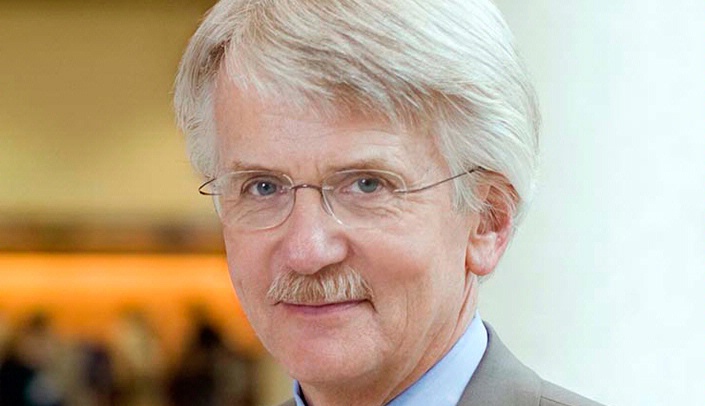Ronald Petersen, M.D., Ph.D., a national leader on Alzheimer’s disease, will be the guest speaker for the Denham Harman, M.D., Ph.D., Lectureship in Biomedical Gerontology at noon April 1 in the Durham Research Center Auditorium. The lecture is free and open to the public.
His lecture, titled, “How Early Can We Diagnose Alzheimer’s Disease?” will explore the criteria for diagnosing cognitive impairment, to characterizing signs of the disease, and communicating the information with patients.
Lecture to be livestreamed
Dr. Petersen’s lecture will be livestreamed. To access the link for the noon lecture on April 1, click here.
Sponsored by the UNMC Department of Internal Medicine, the lecture honors the late Dr. Harman, who spent his career studying the aging process and researching ways to extend the healthy life span of humans. Dr. Harman passed away in 2014 at the age of 98.
Dr. Petersen is director of the Mayo Clinic Alzheimer’s Disease Research Center in Rochester, Minn. and is the Cora Kanow Professor of Alzheimer’s Disease Research.
The focus of his research is to develop an effective way of diagnosing Alzheimer’s disease before symptoms begin to appear, so patients can get treatments that address some of the symptoms of the disease and possibly slow disease progression. Currently, there is no treatment to prevent or stop the disease.
“An important first step in developing a treatment plan for any disease is having a clear diagnosis,” Dr. Petersen said. “New Alzheimer’s tests may help with early detection of some of the pathological components of the disease. However, before these become widely available, more research is needed to determine who might benefit from them and what they reveal about the progression of Alzheimer’s and other diseases.”
Dr. Petersen has authored more than 800 peer-reviewed articles on memory disorders, aging, and Alzheimer’s disease and has edited five books on these topics.
He is the recipient of numerous awards, including the inaugural Ronald and Nancy Reagan Research Institute Award in 2004 from the Alzheimer’s Association.
He has served on the National Advisory Council on Aging, the Board of Scientific Counselors of the National Institute on Aging, and is on the board of the Alzheimer’s Association. In 2011, he was appointed by the Secretary of Health and Human Services, Kathleen Sebelius, to serve as the chair of the Advisory Council on Research, Care and Services for the National Alzheimer’s Project Act. He has been on the World Dementia Council since its inception in 2014.
